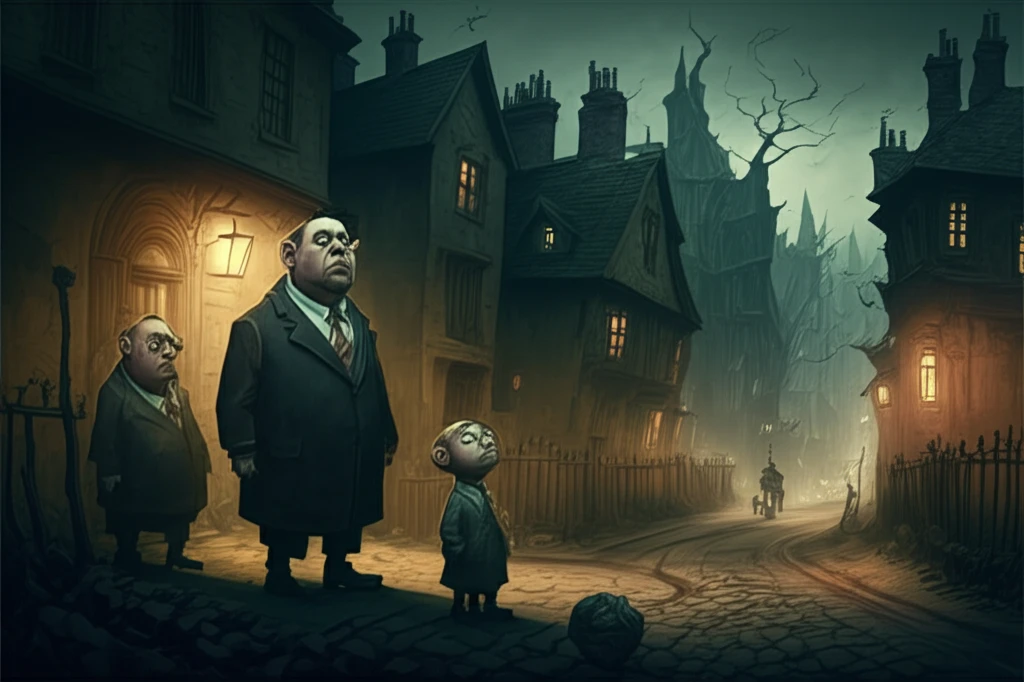
Decoding Dark Humor: How 'The League of Gentlemen' Mirrored 90s England's Gender and Sexual Identity Crisis
"Dive into the twisted world of Royston Vasey and discover how comedy became a mirror reflecting England's deepest anxieties about gender, sexuality, and the looming millennium."
In the late 1990s, as England teetered on the edge of a new millennium, a peculiar comedy emerged from the shadows. 'The League of Gentlemen,' with its bizarre characters and unsettling storylines, wasn't just seeking laughs. It was holding a mirror to the nation's anxieties about identity, gender, and sexuality, all wrapped in a darkly humorous package. This article delves into how the show captured and played upon these cultural tensions, offering a lens through which to understand the era's unease.
At first glance, 'The League of Gentlemen' is a masterclass in grotesque comedy. But beneath the surface lies a sharp commentary on the social and political landscape of 1990s England. The series dared to explore themes of masculinity, sexual perversity, and societal breakdown, using its unique brand of horror-infused humor to expose the fears and uncertainties of a nation grappling with rapid change.
This analysis will dissect key elements of the show, revealing how its creators used dark humor, complex characters, and shocking storylines to reflect and challenge the prevailing attitudes toward gender and sexuality. By examining the show's context within the social and political climate of the time, we uncover the deeper meanings behind the laughter and understand why 'The League of Gentlemen' remains a relevant and insightful commentary on the anxieties of a generation.
Unpacking the anxieties: How The League of Gentlemen Reflected England's Identity Crisis

The 1990s in England were marked by a profound sense of identity crisis. Traditional notions of masculinity were crumbling, and the economic shifts brought about by Thatcherism left many feeling lost and insecure. English media reflected the absence of a unified national identity, portraying unemployment, industrial decay, and a general sense of unease. This created fertile ground for a show like 'The League of Gentlemen' to tap into these anxieties and hold them up for comedic scrutiny.
- Economic Uncertainty: The dismantling of British industry led to widespread male unemployment and a questioning of traditional roles.
- Shifting Social Norms: Debates about gender roles, sexuality, and national identity created a sense of instability and confusion.
- Millennial Tension: As the end of the century approached, anxieties about the future and the changing world intensified.
More Than Just Laughs: The Enduring Legacy of The League
'The League of Gentlemen' offered more than just entertainment; it provided a platform for understanding and grappling with the anxieties of a nation on the brink of a new era. Its enduring legacy lies in its ability to make us laugh at our own discomfort and challenge us to confront the complexities of identity, gender, and sexuality.
